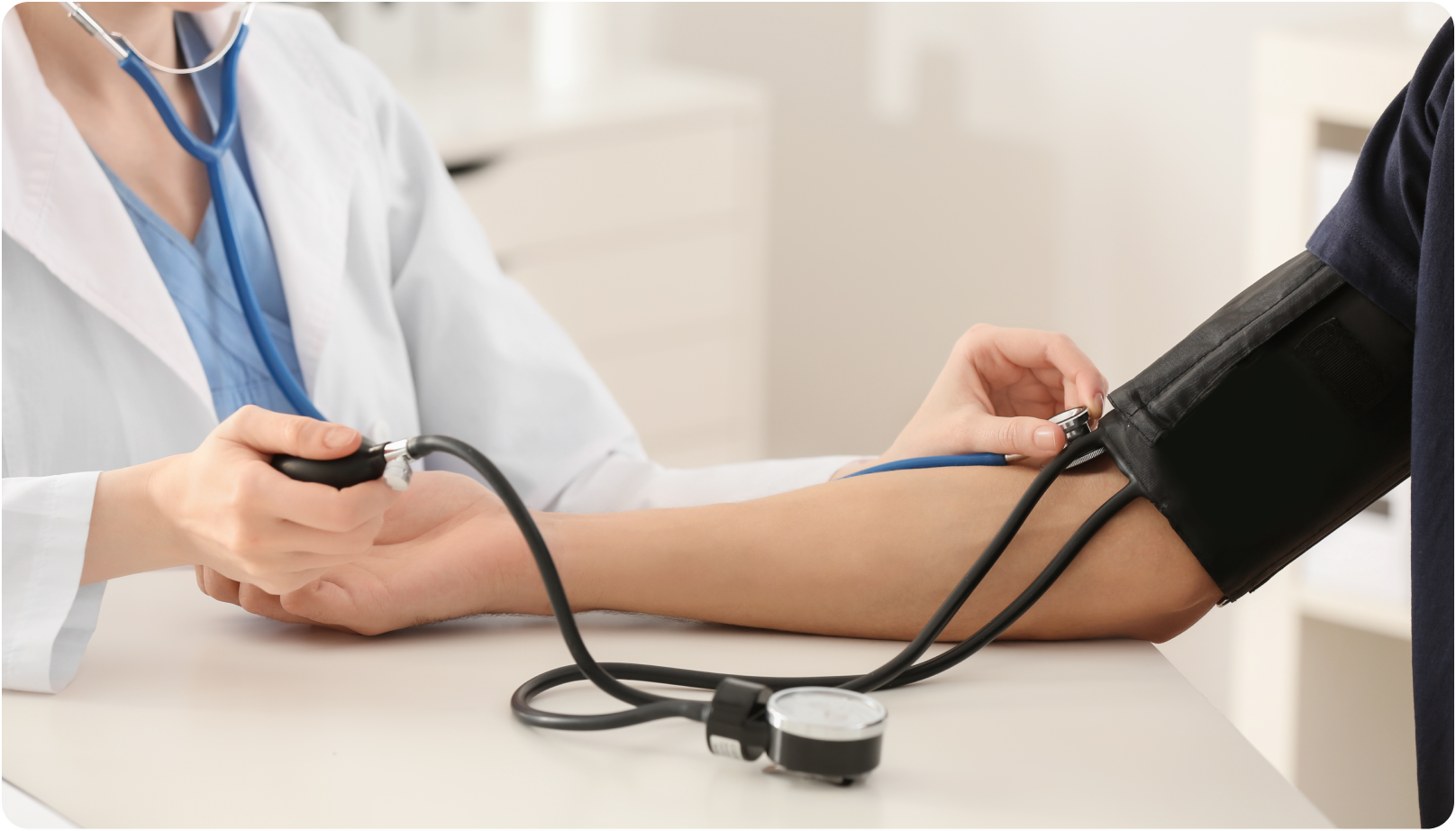Listen to Your Heart: Recognising Symptoms and the Importance of Health Screenings
According to the World Health Organisation (WHO), Cardiovascular disease (CVD) is the world’s number one killer, causing over 17.9 million deaths per year.
Medically reviewed and written by Dr Peter Ting
26 September 2024
Share

According to the World Health Organisation (WHO), Cardiovascular disease (CVD) is the world’s number one killer, causing over 17.9 million deaths per year. Of these deaths, 85% were due to heart attack and stroke.
In recognition of World Heart Day, we will delve into the early warning signs of a heart attack, the importance of recognising these signals and understanding when to seek medical help.
In addition, we will highlight the vital role of regular health screenings and check-ups in detecting potential heart issues early, empowering individuals to take charge of your cardiovascular health.
Overview of Cardiovascular Disease
Cardiovascular disease (CVD) refers to a group of disorders affecting the heart and blood vessels. This includes conditions such as coronary artery disease, heart attacks, strokes, hypertension, heart failure, and arrhythmias. CVD is primarily caused by atherosclerosis, a process where fatty deposits accumulate in the arteries, leading to narrowed blood vessels and reduced blood flow.
Warning Signs of Cardiovascular Disease
Being aware of the signs and symptoms of cardiovascular problems and knowing when to seek medical help can make a significant difference in outcomes. Here are some common warning signs to look out for which warrant medical attention:
- Chest Pain or Discomfort
Often described as pressure, squeezing, or fullness, this can be a key indicator of heart-related issues. - Shortness of Breath
Difficulty breathing, especially during physical activity or when resting, may signal heart problems. - Fatigue
Unexplained or excessive tiredness, particularly in women, can be an early sign of heart disease. - Irregular Heartbeats
Palpitations or a racing heart can indicate arrhythmias or other cardiovascular issues. - Dizziness or Lightheadedness
Feeling faint or weak may suggest inadequate blood flow, potentially signalling a heart condition. - Swelling in the Legs, Ankles, or Feet
This can occur due to fluid retention related to heart failure. - Pain in Other Areas
Discomfort may also radiate to the shoulders, neck, jaw, back, or arms, particularly during physical exertion.

Common Causes of Symptoms
The symptoms of cardiovascular disease are typically linked to disruptions in blood flow and the heart’s functionality. Common causes include:
- Atherosclerosis
The buildup of fatty deposits in the arteries restricts blood flow, leading to chest pain and other symptoms. - Heart Muscle Damage
Conditions such as heart attacks can damage heart tissue, impairing its ability to pump blood and resulting in fatigue and shortness of breath. - Arrhythmias
Irregular heartbeats can occur due to electrical disturbances in the heart, causing palpitations and dizziness. - Heart Valve Issues
Malfunctioning heart valves can impede blood flow, leading to symptoms like swelling and fatigue. - Reduced Oxygen Supply
When the heart or brain doesn’t receive enough oxygen, symptoms such as chest pain or dizziness can arise.
Various risk factors can increase the likelihood of developing cardiovascular disease and its associated symptoms:
- Unhealthy Diet
Diets high in saturated fats, trans fats, and sodium can contribute to atherosclerosis, raising the risk of symptoms. - Physical Inactivity
A sedentary lifestyle can lead to obesity and high blood pressure, both of which heighten the risk of CVD. - Tobacco Use
Smoking damages blood vessels and reduces oxygen levels in the blood, exacerbating symptoms and increasing heart disease risk. - High Blood Pressure
Hypertension places additional strain on the heart and blood vessels, making symptoms more likely. - Diabetes
Elevated blood sugar levels can damage blood vessels, leading to cardiovascular symptoms. - Family History
A genetic predisposition to heart disease can intensify the effects of lifestyle-related risk factors.

Importance of Health Screening
While recognising symptoms is vital, proactive health screenings play an equally important role in the prevention and early detection of cardiovascular disease. Here’s why they matter:
- Early detection of risk factors
Regular screenings can identify risk factors such as high blood pressure, high cholesterol, and diabetes before they lead to serious cardiovascular issues. Early detection allows for timely intervention, which can significantly reduce the risk of heart attacks and strokes. - Personalised risk assessment
Screenings provide insights into individual cardiovascular health, enabling healthcare providers to assess risk profiles tailored to each patient. This personalised approach helps in creating effective prevention and treatment plans. - Monitoring existing conditions
For individuals already diagnosed with cardiovascular disease or related risk factors, regular screenings help monitor the effectiveness of treatments and lifestyle changes, allowing for timely adjustments to management strategies. - Encouraging healthy lifestyle changes
Identifying risk factors can motivate individuals to adopt healthier habits. Screenings often serve as a wake-up call, encouraging patients to improve their diet, increase physical activity, and quit smoking.
Regular screenings help identify risk factors and potential issues before they escalate into serious health problems. By prioritising these check-ups, you empower yourself to make informed decisions about your heart health and take proactive steps toward prevention.
Don’t wait until symptoms arise - Take charge of your cardiovascular health today! Put your heart into it and schedule a cardiac screening with our Cardiologist, Dr Peter Ting.

Dr Peter Ting is a cardiologist with special interests in non-invasive diagnosis and management of a wide variety of heart disorders. He is experienced in rehabilitating and reversing coronary disease.



